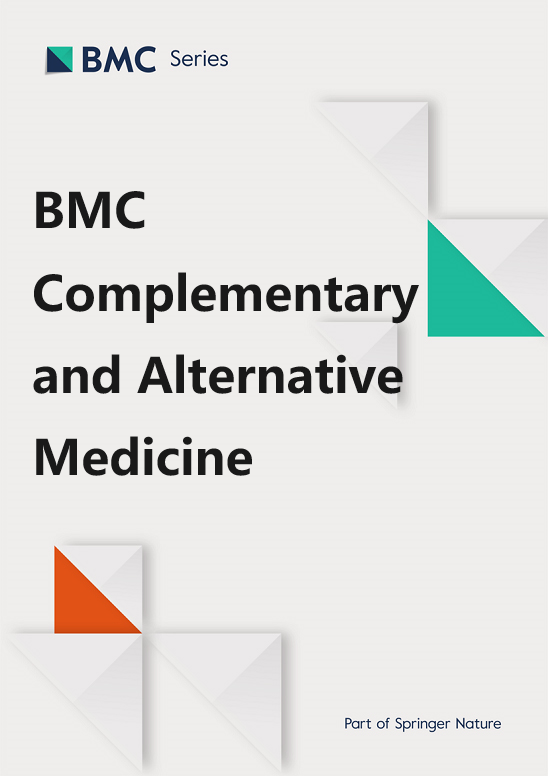多发性硬化症患者使用的药用植物、患病率及相关因素:一项描述性横断面研究
IF 3.4
2区 医学
Q1 Medicine
引用次数: 0
摘要
多发性硬化症(MS)是一种使人衰弱的慢性疾病,不仅会导致残疾和相关病症,还会影响人们维持职业生活的能力。人们对药用植物(MPs)的接受和利用在治疗过程中发挥着重要作用。因此,本研究旨在调查多发性硬化症患者使用药用植物的情况。本研究对 2021 年在伊朗克尔曼一家私人诊所和多发性硬化症协会就诊的 150 名多发性硬化症患者进行了描述性横断面研究。数据收集采用了一份调查问卷,其中包括有关社会人口学信息、疾病变量和中草药使用方面的问题。统计分析使用 SPSS 版本 20(SPSS Inc.)采用卡方检验来确定人口统计学特征与 MPs 使用之间的关联。为了确定特定地区植物使用的普遍程度以及信息提供者之间的共识,计算了使用价值(UV)和信息提供者共识因子(Fic)。研究显示,多发性硬化症患者使用主要植物的比例很高。洋甘菊(66.6%)和鹅掌楸(62.0%)是最常用的植物,其 UV 指数最高(分别为 0.88 和 0.82),而圣约翰草和甘草则很少使用(分别为 0.67% 和 4%)。参与者认为追求更健康的生活方式是使用 MPs 的主要原因(24%)。圣约翰草、薰衣草和洋甘菊是最令人满意的植物(分别为 100%、100% 和 53.0%)。洋甘菊的 Fic 值也最高。大多数患者都希望从亲戚那里获得 MPs。鉴于多发性硬化症患者广泛使用 MPs,神经科医生应加强这方面的知识,引导患者避免向非专业人员寻求建议。提供标准化制剂有助于防止 MPs 与主流药物之间的潜在相互作用,从而提高患者的安全性和治疗效果。本文章由计算机程序翻译,如有差异,请以英文原文为准。
Medicinal plants used in multiple sclerosis patients, prevalence and associated factors: a descriptive cross-sectional study
Multiple sclerosis (MS) is a chronic and debilitating disease that not only leads to disability and associated condition but also impacts one’s ability to maintain a professional life. People’s acceptance and utilization of medicinal plants (MPs) play an important role in managing their treatment process. As a result, this study aims to investigate the use of medicinal herbs among patients with MS. A descriptive cross-sectional study was conducted on 150 MS patients who visited a private clinic and the MS Association in Kerman, Iran in 2021. A questionnaire comprising questions about sociodemographic information, disease variables, and aspects of MPs usage was utilized for data collection. Statistical analysis was performed using SPSS version 20 (SPSS Inc., Chicago, IL). The Chi-square test was employed to identify any association between demographic characteristics and MPs usage. To determine the prevalence of plant use in a specific area and the consensus among informants, the use value (UV) and Informant consensus factor (Fic) were calculated. The study revealed a high prevalence of MPs usage among MS patients. Chamomile (66.6%) and golegavzaban (62.0%) were the most commonly used plants with the highest UV indices (0.88 and 0.82 respectively), while St. John’s wort and licorice were rarely used (0.67% and 4% respectively). Participants cited pursuing a healthier lifestyle as the primary reason for using MPs (24%). St. John’s wort, lavender, and chamomile were the most satisfying plants (100%, 100%, and 53.0% respectively). Chamomile had the highest Fic too. Most patients were motivated to get MPs from their relatives. Given the widespread use of MPs among MS patients, neurologists should enhance their knowledge in this area to guide patients away from seeking advice from non-professionals. Providing standardized formulations can help prevent potential interactions between MPs and mainstream drugs, thereby improving patients safety and outcomes.
求助全文
通过发布文献求助,成功后即可免费获取论文全文。
去求助
来源期刊

BMC Complementary and Alternative Medicine
INTEGRATIVE & COMPLEMENTARY MEDICINE-
CiteScore
7.00
自引率
0.00%
发文量
0
审稿时长
3 months
期刊介绍:
BMC Complementary Medicine and Therapies is an open access journal publishing original peer-reviewed research articles on interventions and resources that complement or replace conventional therapies, with a specific emphasis on research that explores the biological mechanisms of action, as well as their efficacy, safety, costs, patterns of use and/or implementation.
 求助内容:
求助内容: 应助结果提醒方式:
应助结果提醒方式:


